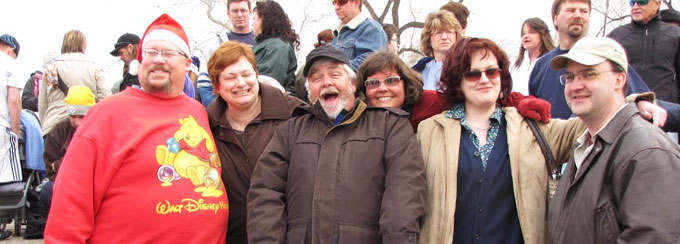A Post by John K. Trepp

Perhaps the most unique, and certainly one of the most important charaqcteristics of a Fairweather Lodge is the emphasis on Group Autonomy. (See What is a Fairweather Lodge?)
In his pioneering work in the early sixties, Dr. Fairweather established 13 Principles of the Lodge. (Dr. Fairweather never used the term “Fairweather” Lodge.) Dr. Fairweather’s Principle #1 was, “Members must have a stake in the system,” and his Principle #2 was, “The system must give as much autonomy to its members as is possible, consistent with their behavioral performance.”
In later years, the original 13 Principles were consolidated into the 8 “Modern Principles” of a Fairweather Lodge, including Principle VII, “In order to progress, people with psychiatric disabilities need autonomy commensurate with their behavioral performance, with the ultimate goal of full autonomy. Similarly, the Lodge needs autonomy commensurate with its behavioral performance, with total autonomy being the ultimate goal.”
Explaining Lodge Autonomy, over the years, to folks unfamiliar, I hear three questions: 1) Why? 2) How? And Seriously?
Why is partially addressed within Modern Principle VII (above). We do want people to progress, right? If autonomy is the goal for Lodge Members, common sense suggests that autonomy ought to be the goal for Lodges, i.e., the collected Lodge Members, or Group. Other forms of residence, where the authority for decision-making rests with someone who is not a resident, likely someone being paid for their involvement, are unlikely to show much in fostering individual or group autonomy.
I don’t think many adults would want to live in a setting where decisions are made exclusively by others. And I think this is a driving force behind the inclination of people with serious mental illnesses to avoid group living. They “want” their own apartment – as though that would magically make them “independent.” As though “independent” was a good thing.
People unfamiliar with Fairweather Lodges assume that living in a small group of people with serious mental illnesses means under the supervision of someone outside the group. I think that when folks with serious mental illnesses talk about “independence,” what they really mean is being able to make their own decisions. Not so much having their own kitchen.
One problem with making your own decisions is that it’s hard work. I am an autonomous person, have been since I completed high school and left my parent’s home. (I am “interdependent,” see “Tyranny of Independence,” sharing decision-making with my spouse and others with whom I am interdependent.)
I participate in a variety of activities, some where I am the sole decision-maker, some where I play a prominent role in decision-making (e.g., my senior volleyball team where I am the player-coach), and some where I have no role in the decision-making. (e.g., my senior softball team). I could, presumably, insert myself into the decision-making of my softball team, but I play to stay in shape for volleyball, and I don’t need the aggravation.
But softball is only two mornings a week. I wouldn’t want to live in a setting where others made decisions about what I could and couldn’t do, without my input. (A setting of that sort might be in my future, as I age and become infirm, but I am sure not looking forward to it.)
Not only is decision-making hard work, good decision-making, like any other life-skill, takes practice. Simply wanting to make your own decisions, or talking about making your own decisions, does not necessarily lead to making good decisions.
Being able to make decisions, tough decisions with real consequences, is what the Lodge is all about. And it works. Lodge Members grow strong and confident in their decision-making skills; more so than people living alone.